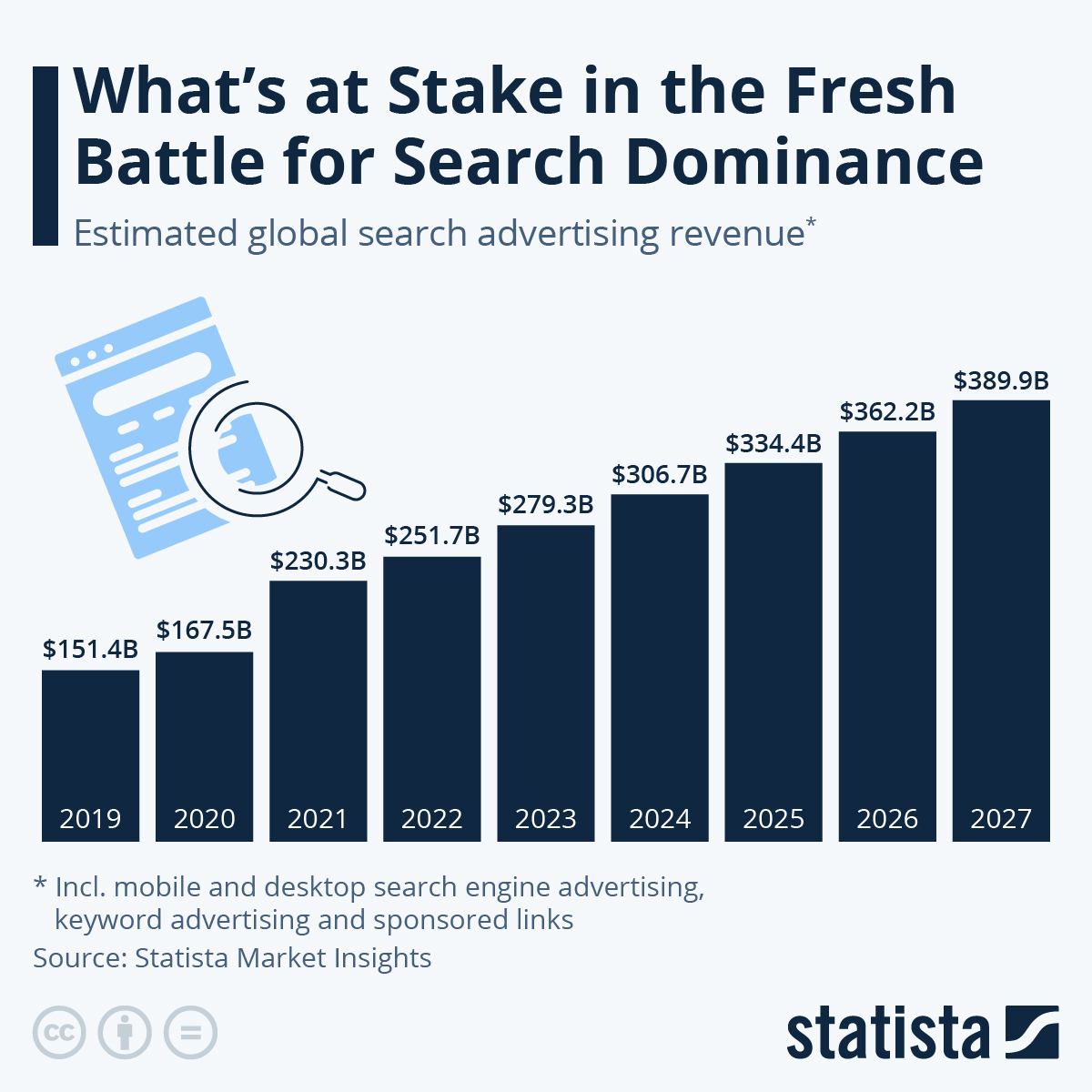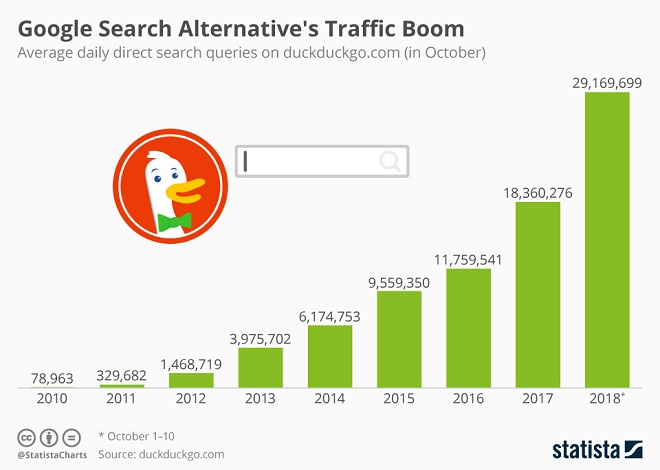Source: Statista
The release of OpenAI’s conversational chatbot ChatGPT late last year set off the alarm bells at Google’s headquarters in Mountain View, California, as the company’s management viewed the nascent technology as a serious threat to its core search business. To make things worse, OpenAI, the company behind ChatGPT, is working closely with Microsoft, one of Google’s last remaining competitors in the search market (if you can even call it competition).
And sure enough, Google’s worst fears with respect to ChatGPT became reality on Tuesday, when Microsoft announced a new Bing running on a next-generation OpenAI model that is “more powerful than ChatGPT” and customized specifically for search. “AI will fundamentally change every software category, starting with the largest category of all – search,” Satya Nadella, Microsoft’s chairman and CEO, said in a statement, calling the AI-powered versions of Bing search and Edge browser “an AI copilot for the web.”
That announcement was arguably the most obvious attack on Google and its search business since the launch of Bing in 2009. And while one could argue that Bing’s arrival hardly made a dent in Google’s dominance, this time things feel differently, as technological shifts have often coincided with shifts in the balance of power – just ask Nokia. But even if Google successfully manages to defend its dominant position in the search market, losing just a couple of percentage points in market share would translate into billions of dollars in lost advertising revenue. According to estimates from Statista’s Digital Market Insights, global search advertising revenue amounted to $260 billion last year and could climb to $400 billion by 2026.


